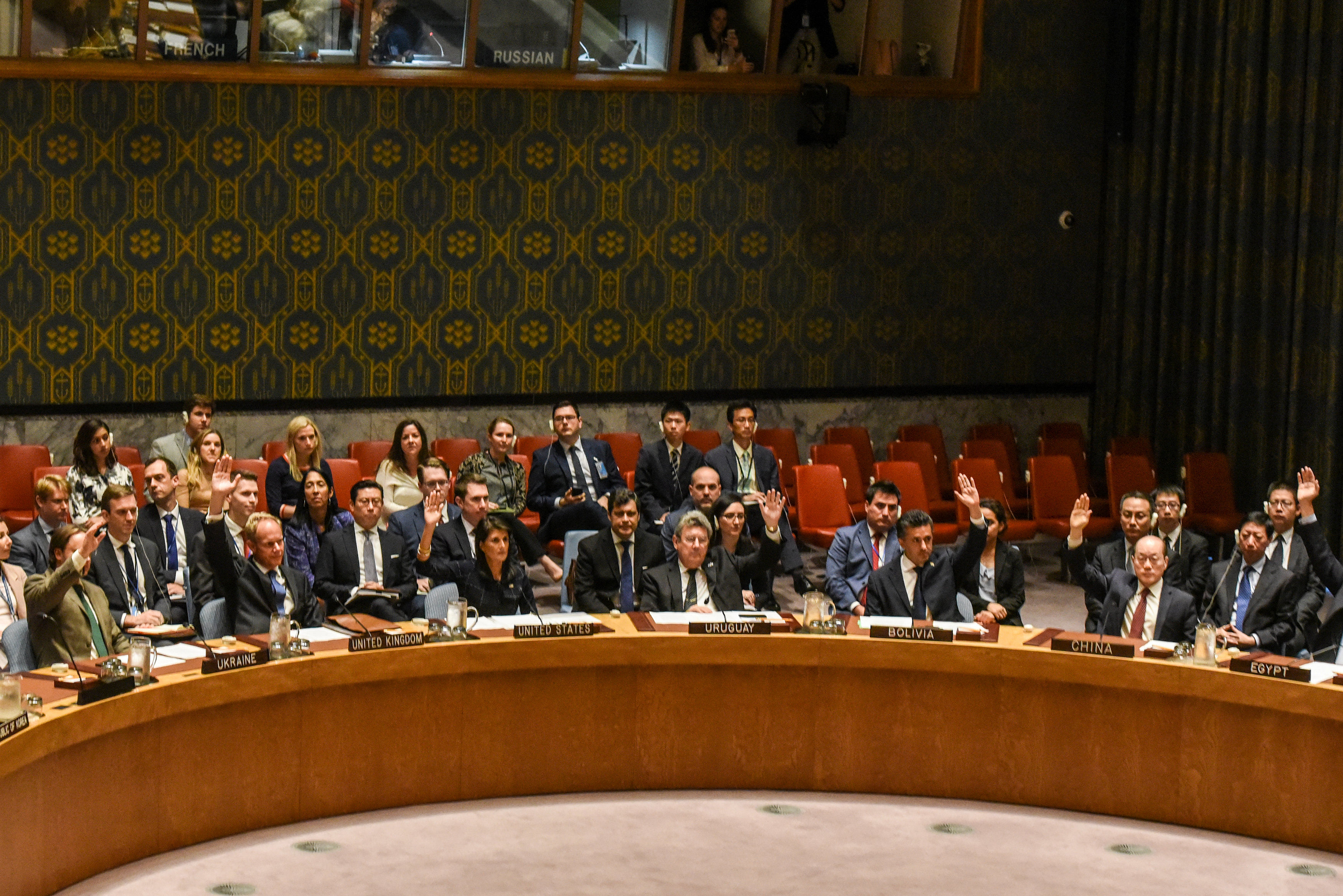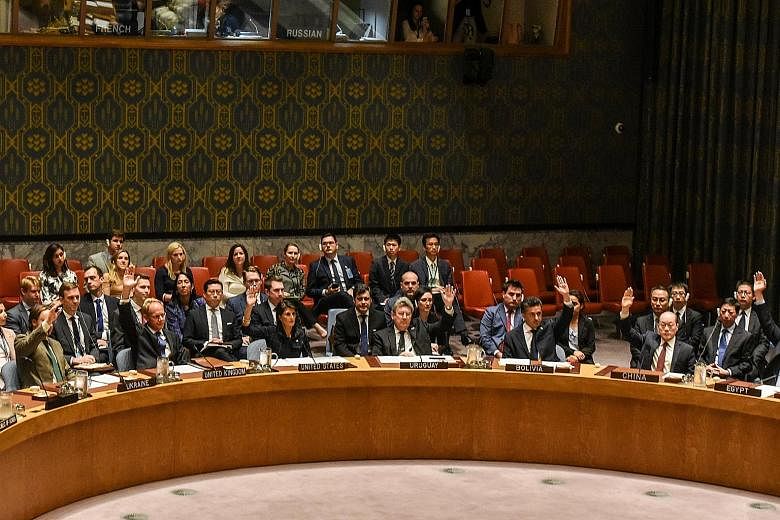New United Nations Security Council sanctions imposed against North Korea are watered down from an original draft by the United States, which had sought the stopping of fuel shipments and the right to arbitrarily board and inspect ships plying in and out of North Korean ports.
The sanctions further squeeze North Korea. "We are done trying to prod the regime to do the right thing," said US Ambassador to the UN Nikki Haley. "We are now acting to stop it from having the ability to continue doing the wrong thing."
She added: "We are doing that by hitting North Korea's ability to fuel and fund its weapons programme. Oil is the lifeblood of North Korea's effort to build and deliver a nuclear weapon."
Britain's Ambassador to the UN, Mr Matthew Rycroft, told reporters: "The version on the table is... a very significant set of additional sanctions on imports into North Korea and on exports out of North Korea and other measures as well."
But the sanctions stop short of choking off the regime's economic lifelines. This reflected concerns from China and Russia, which have advocated dialogue, maintaining that sanctions will not force North Korea to stop its nuclear missile programme.
The new sanctions ban textile imports from North Korea, prohibit the sale of natural gas to the regime and sets a cap of two million barrels per year for refined petroleum sales to Pyongyang.

Stopping fuel shipments altogether would have a severe impact on North Korea, including hardship for its population on the brink of a cold winter.
The resolution agrees to ship inspections but stipulates that they should be done with the consent of the countries where the ships are registered.
The resolution also diluted original language that would have banned the use of North Korean labour. Russia reportedly uses considerable North Korean labour.
The dilution of an initially strong draft was not unusual, Mr Anthony Ruggiero, senior fellow at the Foundation for Defence of Democracies, told The Straits Times. It "demonstrates the difficulties of negotiating with North Korea's chief sanctions enablers, China and Russia", he said.
Nevertheless, the new resolution was an important step forward and there was room for strong interpretation, he said.
"The US should implement its proposal for inspections of North Korea-related vessels, including boarding on the high seas, through the creation of a group of like-minded countries (South Korea, Japan, Australia, UK, France and Germany) committed to reducing North Korea's revenue and prohibited activities," he said.
The US is left with a problem to be managed rather than resolved the way Washington would prefer, analysts say.
The New York Times quoted Washington-based executive director Daryl Kimball of the Arms Control Association as saying: "There is no only-sanctions strategy that will bring the North Koreans to heel.
"It has to be paired with a pragmatic strategy of engagement. But those talks are not yet happening."
Ms Sue Mi Terry, a former Central Intelligence Agency analyst now with BowerGroupAsia, told The Straits Times that the US is still stuck with limited options.
"There are people in the administration who are trying to get Trump to move down to a deterrence and containment policy for the long term," she said.
"That doesn't mean we have to say we accept North Korea as a nuclear weapons power," she said. "It means we continue with sanctions - potentially secondary boycotts of Chinese banks - and with missile defence; that is, we continue with what we are doing.
"But in the end, we are letting North Korea acquire this (nuclear missile capability) because we are taking the military option off the table."
Earlier on Monday ahead of the vote in the Security Council, North Korea's Ministry of Foreign Affairs in a statement called the resolution illegal and unlawful, and said North Korea was "ready and willing to use any form of ultimate means" against the US.
"The forthcoming measures to be taken by the DPRK (Democratic People's Republic of Korea) will cause the US the greatest pain and suffering it had ever gone through in its entire history," the ministry said, using North Korea's official name.



